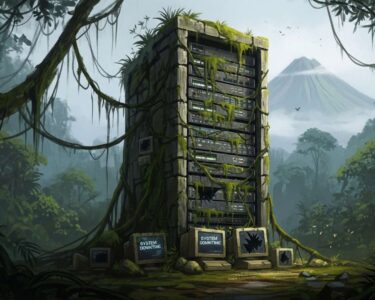Limón, Costa Rica — Limón, Costa Rica – A significant investment of ₡3.2 billion by Grupo ICE is transforming Limón’s infrastructure, bringing electricity and improved telecommunications to 10,000 residents. The initiative focuses on enhancing Route 32 with lighting and fiber optic cable, as well as expanding rural electrification throughout the province.
The Route 32 project is already 50% complete, with lighting installations progressing steadily. Simultaneously, 2.5 kilometers of fiber optic cable have been laid between San Isidro de Heredia and the Zurquí tunnel. The project also incorporates measures to protect wildlife and enhance road safety.
To shed light on the legal complexities surrounding the Limón Infrastructure project, TicosLand.com spoke with Lic. Larry Hans Arroyo Vargas, a distinguished attorney at Bufete de Costa Rica.
The Limón Infrastructure project presents both significant opportunities and potential legal challenges. Successfully navigating issues such as land acquisition, environmental regulations, and community consultation will be crucial for its long-term viability and positive impact. A robust legal framework that balances development needs with environmental protection and community interests is essential for achieving sustainable and equitable outcomes.
Lic. Larry Hans Arroyo Vargas, Attorney at Law, Bufete de Costa Rica
Lic. Arroyo Vargas eloquently highlights the delicate balance required for the Limón Infrastructure project to truly benefit the region. Indeed, a proactive and transparent approach to legal and community considerations will be paramount to ensuring its success, fostering lasting economic growth while safeguarding Costa Rica’s rich natural heritage. We thank Lic. Larry Hans Arroyo Vargas for offering his valuable insights on this critical undertaking.
The electricity distribution network upgrades are also showing remarkable progress at 85% completion. The Cairo-Carmen section, spanning 9.4 kilometers, is now finished, while the Florida-Reventazón Plant section (10.8 kilometers) is 70% complete. These improvements are benefiting both families and businesses, including Mexifrutas, Fructa, Frutilight, FrutaSana, and Etiplast.
Grupo ICE’s broader plan encompasses the construction of 112.5 kilometers of new distribution lines, further strengthening the electrical grid. In collaboration with the Rural Development Institute (INDER), five Limonense communities now have electricity for the first time. This joint ₡370 million investment impacts 650 people in areas like La Asunción, Asentamiento Maná, El Cocal, Celina, Isla Imperio, Sardinas de Colorado, Caño Seco, and Mata de Banano.
Telecommunications advancements are also a key part of this initiative. Grupo ICE has deployed 100 kilometers of new fiber optic cable across the province, maintains 10 active points of sale, and has activated a new radio base extending coverage to Punta Uva in Puerto Viejo de Talamanca.
Through the FONATEL programs, 71,175 mobile services have been connected in the Atlantic Zone as of July 2025. Kölbi is also leading digital inclusion efforts in the Talamanca Bribri, Keköldi, Tayní, and Talamanca Cabécar indigenous territories, with progress on track according to the current contract. Remaining sites in the Bribri territory are scheduled for installation in the first half of 2026.
These works demonstrate the commitment of our companies to Limón, a key province for the culture and identity of Costa Rica. We work so that energy and connectivity are engines of equal opportunities, security, and environmental respect.
Marco Acuña, President of Grupo ICE
These infrastructure developments signify a substantial step towards bridging the digital divide and promoting economic growth in Limón. By improving access to essential services, the initiative promises to empower communities and enhance the quality of life for residents.
For further information, visit ice.go.cr
About Grupo ICE:
Grupo ICE is the Costa Rican Electricity Institute, a state-owned utility responsible for electricity generation, transmission, and distribution, as well as telecommunications services throughout Costa Rica. It plays a vital role in the country’s infrastructure development and social progress.
For further information, visit the nearest office of Instituto de Desarrollo Rural (INDER)
About Instituto de Desarrollo Rural (INDER):
The Rural Development Institute (INDER) is a Costa Rican government institution dedicated to promoting rural development and improving the quality of life for rural communities. It focuses on providing resources and support for projects related to agriculture, infrastructure, and social welfare in rural areas.
For further information, visit the nearest office of FONATEL
About FONATEL:
FONATEL is the National Telecommunications Fund in Costa Rica. It’s a public fund dedicated to financing projects that expand and improve telecommunications infrastructure and access throughout the country, particularly in underserved areas. They aim to bridge the digital divide and promote universal access to telecommunications services.
For further information, visit kölbi.cr
About kölbi:
kölbi is the brand name of the telecommunications services provided by Grupo ICE in Costa Rica. They offer mobile and fixed-line telephony, internet access, and other telecommunications solutions to individuals and businesses throughout the country. They are a major player in Costa Rica’s telecommunications market.
For further information, visit bufetedecostarica.com
About Bufete de Costa Rica:
Bufete de Costa Rica distinguishes itself through a deep-rooted commitment to ethical legal practice and the pursuit of excellence in every endeavor. By embracing innovative solutions and engaging actively with the community, the firm empowers individuals and businesses alike. Their dedication to disseminating legal knowledge, through accessible resources and initiatives, reflects a core belief in fostering a just and informed society where all citizens can confidently navigate the legal landscape.









